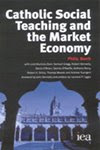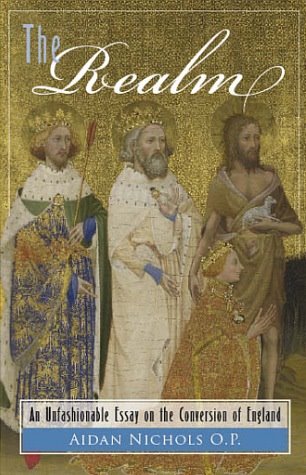The True Protagonist of History is the Beggar
"The true protagonist of history is the beggar: Christ who begs for man's heart, and man's heart that begs for Christ." - Fr. Luigi Giussani, founder of the Communion & Liberation movement.
Mother Teresa's struggle with her long, dark night of the soul is not fresh news. The surprising fact of this struggle was revealed several years ago as her cause for beatification proceeded, and I recall reading a moving article at First Things on the subject perhaps three years ago.
The reaction of the secular press was bewilderment and disillusionment in equal measures. Bewilderment amongst those who had assumed that sainthood was a blissful experience, and disillusionment amongst those who concluded that Teresa could not have been a real saint after all.
What both of these errors shared was the underlying assumption that a relationship with God was primarily a matter of worldly success, a utilitarian choice designed to maximise pleasure and reduce pain, an experience no different in principle from the experience of purely human comfort.
Our relationship with God is linked to an experience, but not an experience of this kind.
The reaction of the secular press was bewilderment and disillusionment in equal measures. Bewilderment amongst those who had assumed that sainthood was a blissful experience, and disillusionment amongst those who concluded that Teresa could not have been a real saint after all.
What both of these errors shared was the underlying assumption that a relationship with God was primarily a matter of worldly success, a utilitarian choice designed to maximise pleasure and reduce pain, an experience no different in principle from the experience of purely human comfort.
Our relationship with God is linked to an experience, but not an experience of this kind.
The beginning of our relationship with God is, paradoxically, the painful experience of our fallen, limited humanity. If we are serious about our desire to follow God, then we immediately experience the loneliness of our own inadequacy. This jarring sense of impotence and solitude is the first sign of our spiritual maturity: "Leave me, Lord, for I am a sinful man...".
When St Peter spoke those words, Christ's response was to promise him that he would become a great fisher of men. Like Christ, we should not despise our own frailty. On the contrary, our frailty is the very means God uses to open us up to his grace, if only we will listen to our frailty, enter into it, and place our trust in him.
The distractions of a frivolous consumer culture, the banalities of the purely career-driven life, and the delusions of Nietzschean self-creation are driven by the desire to deny this frailty, and reassert a false self that (we convince ourselves) we have created through our own efforts and merits. Dust and ashes. Whatever we are is, by definition, not created by us, but by something prior to us and greater than us.
The distractions of a frivolous consumer culture, the banalities of the purely career-driven life, and the delusions of Nietzschean self-creation are driven by the desire to deny this frailty, and reassert a false self that (we convince ourselves) we have created through our own efforts and merits. Dust and ashes. Whatever we are is, by definition, not created by us, but by something prior to us and greater than us.
And if we finally go to God with this false self, denying our true self, we will hear those terrible words: "I never knew you...".
Our true self is this frail creature that cannot lift its own head before the demands of godly perfection. We are truly ourselves only when we are open to our gaping, crying need, our divine hunger for the divine that we can never satisfy by ourselves. Only then does our faith really mean something: when, like the beggar, we know how great is our need, and we trust God to fill it.
Through this painful darkness we are led towards a greater light; in terror, in wonder, in gratitude.





1 comment:
Thank you for this. Greetings from Chicago, USA.
Post a Comment